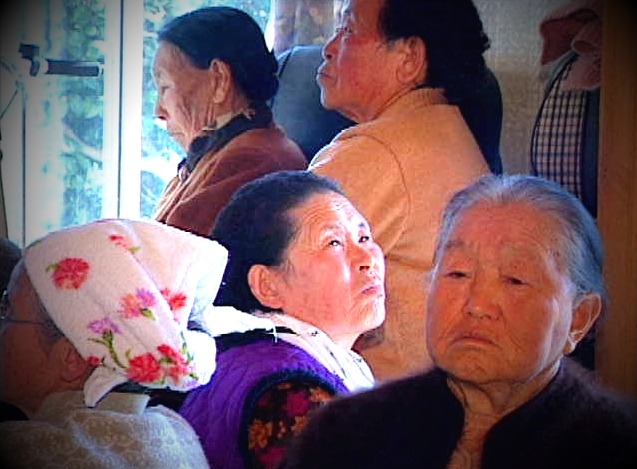Red Hunt by director Cho Sung-bong . . .Documentary film about April 3 massacre
Red Hunt 2 : State Crime
Here are some excerpts translated from the poignant writing of Dir. Cho Sung-Bong on his 4·3 massacre films, Red Hunt and Red Hunt 2. The Red Hunt 2 was titled as the ‘State Crime.’
On the film, ‘Red Hunt’
It was spring, 1997. There was a documentary film festival sponsored by a cable TV called Q channel. Though not existing any more, it was Samsung film project committee who operated the film festival. It must have probably been a matrix for the CJ-Entertainment now.
I made the film considering the deadline of the film festival. Though it was passed in the final selection, screening was cancelled on the very day of it. The reason told was that 4·3 is the subject not permissible for broadcasting. The superficial reason was that ‘review’ is not passed [with the subject]. [..]
I finally decided to withdraw my submission of the film. It was because I could not accept the compromise proposed by the festival committee. In the beginning of the film, the numbers of the victims’ ages and sexes are subtitled. The committee’s demand was to put a separate subtitle that reads “the numbers can be different from the fact and the film was made from the point of view of the victims.” The committee said, if then, the film can pass the ‘review.’ However, I did not accept it and left the film festival.
The slogan of the festival at the time was ‘The Eye of Truth, the Power of Truth.’ An interesting fact was that the programmer of the festival, who made talk for negotiation with me was a Jeju-born who graduated the history department of the Korea University and whose father was from the ‘Northwest Youth League.’ (* An infamous group for its role of merciless killing of the civilians during the 4·3 period). He was same age with me. I found later he became the President of the ‘CJ-CGV.’ [..]
It was the fall of 1997. It was first screened in the Busan international film festival.[..] I remember Abbas Kiarostami (* a famous Iranian movie director) came to watch my film, ‘Red Hunt.’ The film was screened then in the ‘Human Rights film festival,’ after which I was sought for as a criminal under the charge in violation of the ‘National Security Act.’ I was arrested when I went for the passport issue because I was invited from the ‘Berlin film festival.’ I had been escaping but I was willing to be arrested on the day because I wanted to put my affairs straight.
The reason of their indictment against me was interesting. They say it was the reason that my film was same with what North Korea claims. When I asked them how North Korea claims, they said that North Korea says the 4·3 was ‘an intentional massacre by the Rhee Syng-man government and the US Army Military Government of Korea at the time.’ So I said to them, ‘It is same with my thought…’
On the Red Hunt 2 : ‘State Crime’
The form of the Red Hunt 2 is different from the Red Hunt 1. The Red Hunt 2 was composed only by testimonies without narration. I had a reason to make the Red Hunt 2. It was when I was investigated under the charge of the violation on the National Security Act. My investigator told me that “ there are so much of the film maker’s intention.. I cannot believe that there was such tremendous massacre in 4·3,” So I decided to make the 2nd film, thinking, “O.K. fine. Then I will make one film more, composed only by the victims’ testimonies: How people were killed, How it was the crime by the state.”
The Red Hunt 2 starts with Gwangju. It is my idea that 5·18 Gwangju uprising (* May 18 1980)and 4·3 uprising (* April 3, 1948) are not different from each other. In the modern history of Korea, people’s resistance and the ruler’s massacre of people have been always together. The intervention of foreign power, also. The Gabo Peasant’ Uprising (* in 1894), 3·1 Independence movement (* on March 1, 1919), 4·3 uprising (*1947 to 1954), 4·19 revolution (*1960) and 5·18 Gwangju are on that context.

Image by Cho Sung-Bong/ Victims of testimonies, 1996
Filters: Video




